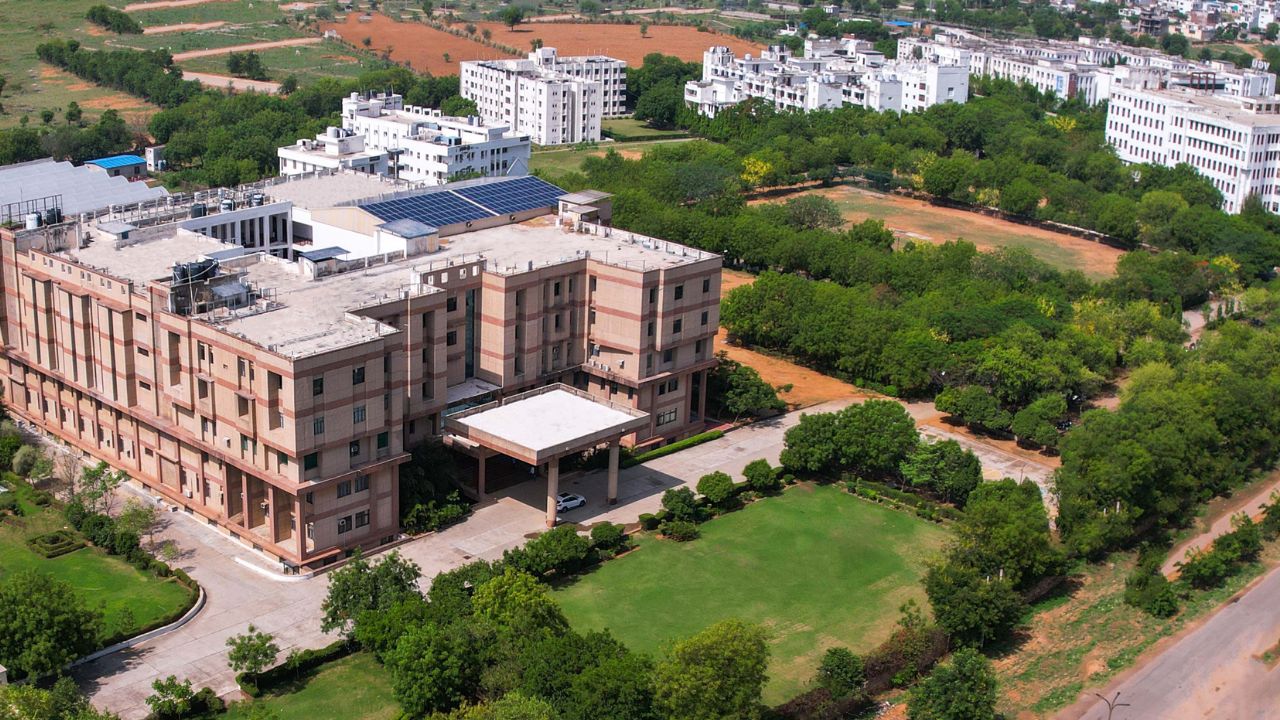More Than Degrees: How VGU is Turning Education into Impact

Let’s begin with a confession.
There was a time when the “impact” of a university was measured in three ways:
- The number of buildings on campus
- The number of gold medals won by students
- And how many newspapers mistakenly called it “a premier institution”
And for a long time, that seemed enough.
Because, frankly, higher education in India was less about preparing students for life—and more about preparing them to fill out bank loan forms for PG courses they didn’t really want.
Now, don’t get me wrong. Degrees are useful.
They help you get past HR filters. They give parents something to brag about at weddings. And sometimes, they even help you understand what you signed up for.
But here’s the twist: the world doesn’t run on degrees anymore. It runs on impact—what you can do, who you can lead, what you can build, and whether you can make anything move besides a classroom discussion.
At VGU, we’re not in the business of churning out degree-holders. We’re in the business of creating impact-makers.
The Great Education Myth
Let’s puncture a popular myth that circulates like WhatsApp forwards during exam season:
“Study well, get good marks, get a good job, live happily ever after.”
Lovely narrative. Unfortunately, the economy doesn’t read fairy tales. Here’s what we’ve learned:
- A student who scores 90% may not know how to pitch themselves in an interview.
- A top-ranker in operations research may panic when asked to lead a messy live project.
- And someone with a perfect CV might not have the courage to raise their hand in a room full of executives.
Because impact doesn’t come from knowing things. It comes from doing things—with imperfect data, tight deadlines, and real-world consequences.
That’s why at VGU, we don’t stop at content delivery. We go after career delivery.
What Do We Mean by “Impact”?
Impact = knowledge applied, networks activated, lives improved.
Let’s break that down:
- Knowledge applied: You didn’t just learn user research in class. You actually redesigned a public-facing app for a local municipality. And it’s live.
- Networks activated: You didn’t just collect LinkedIn connections. You collaborated with alumni, industry mentors, and startup founders to build a real product.
- Lives improved: Your project didn’t just impress your faculty. It helped a real community access better healthcare, water, or education.
And if your learning doesn’t lead to some version of the above—we’re not calling it education. We’re calling it expensive data storage.
Case Study #1: The Engineer Who Solved a Rural Problem
One of our engineering students built a low-cost water filtration system that could be installed in Tier-3 village homes. He wasn’t trying to win a hackathon. He just wanted to solve a problem his grandparents kept talking about.
By the end of the project, not only was the prototype live—but the local district collector asked for a demo.
No TED Talk. No influencer post. Just quietly solving a real-world issue.
That’s impact. (And yes, we made him write about it anyway.)
Case Study #2: The Design Student Who Disrupted Local Logistics
While working with the Atal Community Innovation Centre, a VGU design student paired up with a logistics startup struggling to reduce last-mile delivery times. She redesigned their routing dashboard using behavioral insights from a psychology minor she’d taken on a whim.
Three months later, average delivery times dropped by 14%. The startup got its next round of funding.
Also impact.
So What Makes This Possible?
It’s not magic. It’s architecture.
Not the cement-and-concrete kind. The system-and-mindset kind. Here’s how we’ve re-engineered VGU for impact:
1. Curriculum That Trains for Uncertainty
Every syllabus is outdated the minute it’s printed. That’s why our programs are built to evolve. Students don’t just learn concepts. They learn how to learn new ones, unlearn old ones, and apply both with agility.
2. Live Projects With Real Consequences
If your project isn’t impacting someone outside your classroom—you’re not done. Our students work on real briefs from industries, governments, and social enterprises.
3. Faculty With Real-World Experience
Our faculty aren’t just lecturers. Many have worked in startups, policy think tanks, labs, and global firms. They teach from lived experience, not just textbooks.
Let’s Talk About Metrics (The Good Kind)
We’re often asked: “What are your placement numbers?” And we answer: “Tell us how you define success.”
- Career clarity index – How many students graduate knowing exactly what they want?
- Venture viability index – How many student startups survive beyond 6 months?
- Community impact quotient – How many students contributed to local problem-solving?
- Industry-readiness scores – Peer-reviewed by professionals, not just professors.
The Alumni Advantage: Built In, Not Bolted On
At VGU, alumni stay connected as mentors, investors, researchers, and recruiters. It’s not ceremonial—it’s systemic. That’s how we pay it forward: with belief and bandwidth.
So, Where’s the Punchline?
Degrees don’t create change. People do.
At VGU, we’re turning every learner into a lever of transformation—whether in a boardroom, village, or startup garage.
We don’t sell education as an escape from the world. We offer it as a toolkit to fix it.
Final Word: The Legacy We’re Building
Years from now, no one will remember how many flyers we printed or how glossy our prospectus looked. What they’ll remember is:
- The healthcare worker who used a VGU project to build a diagnostic tool.
- The policy researcher who traced their impact journey back to a class here.
- The founder who nailed her pitch—because she failed one here first.
This is our legacy. Not just a campus. But a cause. Not just education. But real, measurable impact.
Author: Dr. Lalit K. Panwar, IAS (Retd.)